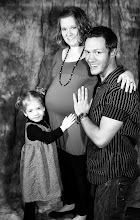Writing a will should, by all means, be a simple thing. You want to make sure that your assets are being left to your loved ones and that your final wishes are being fulfilled. Usually, they are rather straightforward, but that doesn’t mean that they are entirely foolproof. Here, we’re going to look at some common issues that can lead to disputes or delays in carrying out your will.
Not Having It Witnessed Correctly
One of the most common mistakes when writing a will is not having it witnessed correctly. Wills generally require the signatures of at least two witnesses who are not beneficiaries or spouses of beneficiaries. If the will is not witnessed in accordance with legal requirements, it may be declared invalid, meaning your estate would be distributed according to intestacy laws, which may not align with your wishes. It’s important to follow the witnessing procedures exactly as outlined in your jurisdiction to ensure the will is legally enforceable.
Changing the Will After It Has Been Signed
Another mistake that can create legal complications is making changes to the will after it has been signed without properly documenting those changes. Any alterations should be made through a formal codicil, which must be signed and witnessed just like the original will. Simply writing over or adding notes to the original document can render the entire will invalid.
Excluding Family Members Entirely
Excluding family members from your will, particularly close relatives like children or spouses can lead to legal challenges and disputes after your death. In some jurisdictions, disinherited family members have the right to contest the will in court, which can delay the distribution of your assets and create strife among your loved ones. If you choose to exclude a family member, it’s wise to include a clear, written explanation of your decision in your will.
Not Having Proof of Asset Ownership
A will can only distribute assets that are proven to belong to the deceased, making it crucial to have proof of ownership, such as deeds, titles, and financial statements. If these documents are missing or incomplete, it can create delays in settling the estate or lead to disputes among beneficiaries. For instance, without a clear deed for your home, your heirs might face difficulties proving their right to the property. Keeping thorough records and ensuring that all proof of ownership is in order can prevent these complications.
Failing to Write a New Will When Your Assets Change
Life changes, such as acquiring new assets, getting married or divorced, or the birth of a child, often necessitate updating your will. Failing to do so can result in assets being distributed in a way that no longer reflects your current wishes or circumstances. For example, if you acquire a new property but don’t include it in your will, it might not be distributed according to your preferences.
If you want to make sure that your will is carried out, then take the time to prepare it with the help of a lawyer and make sure that you keep it up-to-date.

Comments